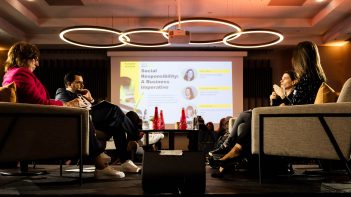As a new member in the RSPO secretariat, it was a new experience for me attending an event as part of an organisation I have just started working for.
The Impacts division which consist of Ravin Krishnan (Complaints Coordinator), Amalia Falah Alam (Complaints Coordinator Indonesia), Rahayu Zulkifli (DSF Manager) and I attended an international conference titled Access to Justice for Indigenous People.
The event took place in the Faculty of Law in University Malaya from the 9th of April to the 11th of April 2015.
On the first day which started at 8.30am, the feeling of butterflies in the stomach and sweaty palms were quite evident. Despite all this, I was honestly, looking forward to my first out-of-the-office ‘business’ trip.
There were a couple of issues that I was planning to comprehend by attending such an event. Firstly, was to understand issues concerning access to justice for indigenous communities. Next, was to explore the inclusive and integrated human rights based approach which is critical to solving various issues between states and indigenous communities.
The first day of the event conference began with an opening speech by Tan Sri Datuk Seri Panglima Richard Malanjum and a keynote address by Professor Dr. Federico Lenzerini. The speech was informative as a few salient points were mentioned.
According to Professor Federico, ancestor lands cannot be seen in monetary form as they have far more value than a price put to it. Thus in order to show respect to the indigenous people, the act of implementing the principles of Free, Prior and Informed Consent (FPIC) is necessary. Without FPIC, the legal, customary and user rights of the natives will be contested by them in native courts. However, for those indigenous communities that have limited or no access, the justice system must go out to reach them, such as the mobile court in Sabah.
Justice has to be in their perspective. That was my take-home point from Professor Geoffrey Benjamin address, in which he said, that land, culture and heritage are related with one another and cannot be separated. He stated that they must also be recognised and protected in order to provide justice to the indigenous people. Nevertheless, justice can be perceived differently by each person and in this case, to protect the indigenous people.
Next in line was the presentations by speakers from different backgrounds, talking on various topics related to the indigenous people. During their presentation, several interesting facts caught my ears. Among some interesting facts I captured were there are three types of indigenous communities currently living in Peninsular Malaysia. They are known as the Senoi, Proto-Malay and Negrito communities. Their customary rights are recognised but not as strongly as the ones in Sabah and Sarawak.
Besides that, the stateless sea gypsies known as Bajau Lauts, are not accorded legal recognition and are often exploited and taken advantage of, in return for their safety and security. Thus, they are deemed with a poor lifestyle.
Finally, I learnt that the Education Policy for the indigenous people in Malaysia is very different compared to the urban schools. This creates a rift in the system. In order to improve the education for the Orang Asli in Malaysia, the education system for the aborigines in Australia was suggested to be used as a guideline.
As a conclusion for the conference, a trip to the Orang Asli Village and the Orang Asli Museum was organised. After a couple of days of speeches and presentations, I was looking forward to have a more hands-on approach and learn something motivational and knowledgeable about the indigenous people during this conference.
At the Orang Asli Village, most of the presenters mentioned the customary rights of the indigenous people but not many of them discussed the actual challenges faced on the ground by indigenous people and what could be done to help them apart from the current legislations. I have to admit though, at this juncture, I was a little disappointed as I was hoping to gain knowledge on what were the methods we were doing wrong in helping them.
Despite this, a few presenters caught my interest when they talked about the life of sea gypsies and using digital heritage as a means to share information about indigenous people. The second topic gave an insight of the ways cultural heritage can be made fun but knowledgeable at the same time in the contemporary era while the first shared that poverty is a made condition not a natural born situation that cannot be overcomed.
All in all, the speakers who were invited were evidently erudite about the topic and shared a passion for it. The knowledge imparted on the audience was stupendous. It was an exciting experience worth sharing about.
Monisha Mohandas
Intern – Impacts Department, Roundtable on Sustainable Palm Oil
Keep reading
Carry Over Credits for Certified Independent Smallholders Group

Latin American smallholders and global brands met in the Peruvian Amazon to advance sustainable palm oil.

From the Amazon to the Aisles: Discovering Sustainable Palm Oil in the Heart of Peru
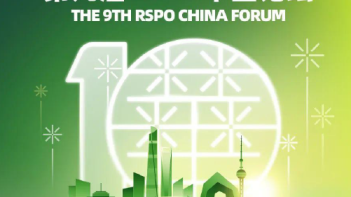
Global Trends of Sustainable Palm Oil and China's Pathway
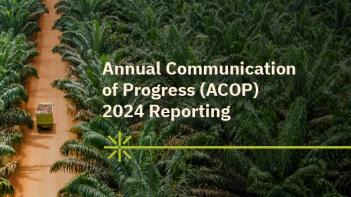
Final list of ACOP 2024 Non Submitters
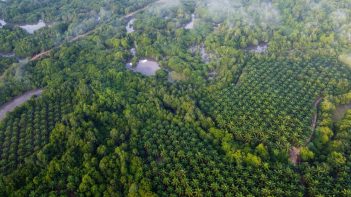
New ISEAL Case Study Identifies Pathways to EUDR Compliance in Palm Oil Sector
Call for Expression of Interest: Nigeria National Interpretation Task Force for 2024 RSPO Principles and Criteria (RSPO P&C) and Independent Smallholder (ISH) Standard
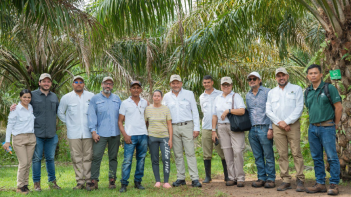
From Cocaine Processing to Cultivating Palm Oil: Resilience takes root in a Colombian community
